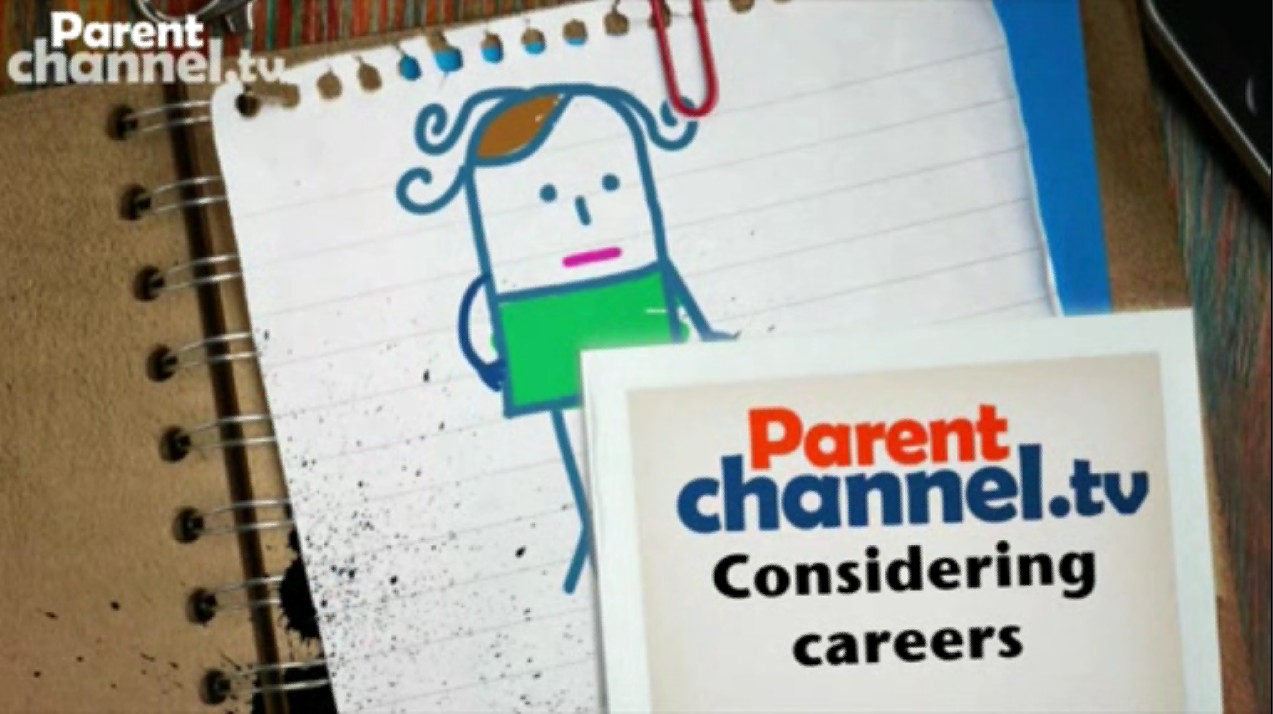 Go to main content
Go to main content
Archive Website of the UK government
Please note that this website has a UK government accesskeys system.
Main menu
Page menu
Video: helping your child make career choices
Advice for parents on how to support and guide teenagers in planning a career.
Can't see the video?

To play this video you need Adobe Flash Player version 9 or higher on your computer and have JavaScript enabled on your browser. Our Help with video files page gives advice if you are unsure how to do this. The Flash software is free.
Text version
Trainee builder: "With the construction industry you'll be learning to be a site manager. I thought I might as well stick to college, get a job, get a few years' site experience before I rush into any higher position. That way people below me know that they can trust my decisions because I know what I'm doing."
Trainee chef: "I don’t regret not going to university because I find that with college I can achieve more going into work afterwards."
Margaret Cowan, careers advisor: "Choosing a career can be really difficult for young people at this time. They're growing, they're developing, their ideas are changing, they're making new friends, they're learning about the world, and it can be really hard for them to make a decision like this on top of everything else that's going on in their lives. At this point, you as a parent can play a really supportive role in helping your child make good decisions about their future."
Dad: "I've been asking the kids what they want to do."
Mum: "Our thirteen year old, she's at that stage now, where she's got her options. And I say to her, 'You do what you want to do'. I can't tell her what to do."
Second mum: "I think you have to leave them to work it out for themselves and make sure they know where to go for advice and talk to the relevant teacher."
Third mum: "I think with my own children I just felt I wanted them to explore all possibilities in different directions and find what's right for them, and not just follow and automatic route."
Second dad: "Anna is at university - she's at Oxford University, where she’s done an undergraduate course in politics, philosophy and economics. She's deeply immersed in university education and is the better for it and loves it."
Jake: "I kind of knew, I guess, when I was around 15, when I was starting my GCSEs at school, that the academic life wasn't for me."
Third mum: "By then he was getting more and more work as a juggler and as a performer and as a juggling teacher, and loved it, absolutely loved it. So it just felt [as though] that was the obvious thing for him to try and make a living at. Any time we did put pressure on, it was probably on Jake to get his GCSEs because we felt that if at a later stage he wanted to go on an academic route, if he's got those basic GCSEs it will be so much easier for him later on."
Help your teen make the best decision for them
Margaret Cowan: "Find out as much as you can about the options and opportunities that are out there, so you can help your child make that connection between their interests, their strengths, the things they enjoy, and what possible careers there are."
Second dad: "It depends on each individual case, and it strikes me that it's really important to see who this child, who this person is that you have before you, and that you respond to that."
Margaret Cowan: "Of course it's important always to stay positive and encourage ambition, even if your child's aspirations give you cause for concern. It's about listening to them positively and trying to find out what it is about their career option that they think they would enjoy."
Jake: "My parents have supported me through everything I've done. As long as they see me being productive and being happy and doing a bit of good, I think they're happy."
Trainee builder: "When I've finished the course, I want to learn another trade. Plumbing or electrician, something that's indoors so when it's cold and I can't lay bricks, I've still got a job I can do so I can still earn the money."
Trainee chef: "I want to be a manager of my own restaurant or be a head chef of my own restaurant. I want my own business."
Useful tips:
- find out about career options for your teen
- talk to them about their plans for the future
- guide and support them